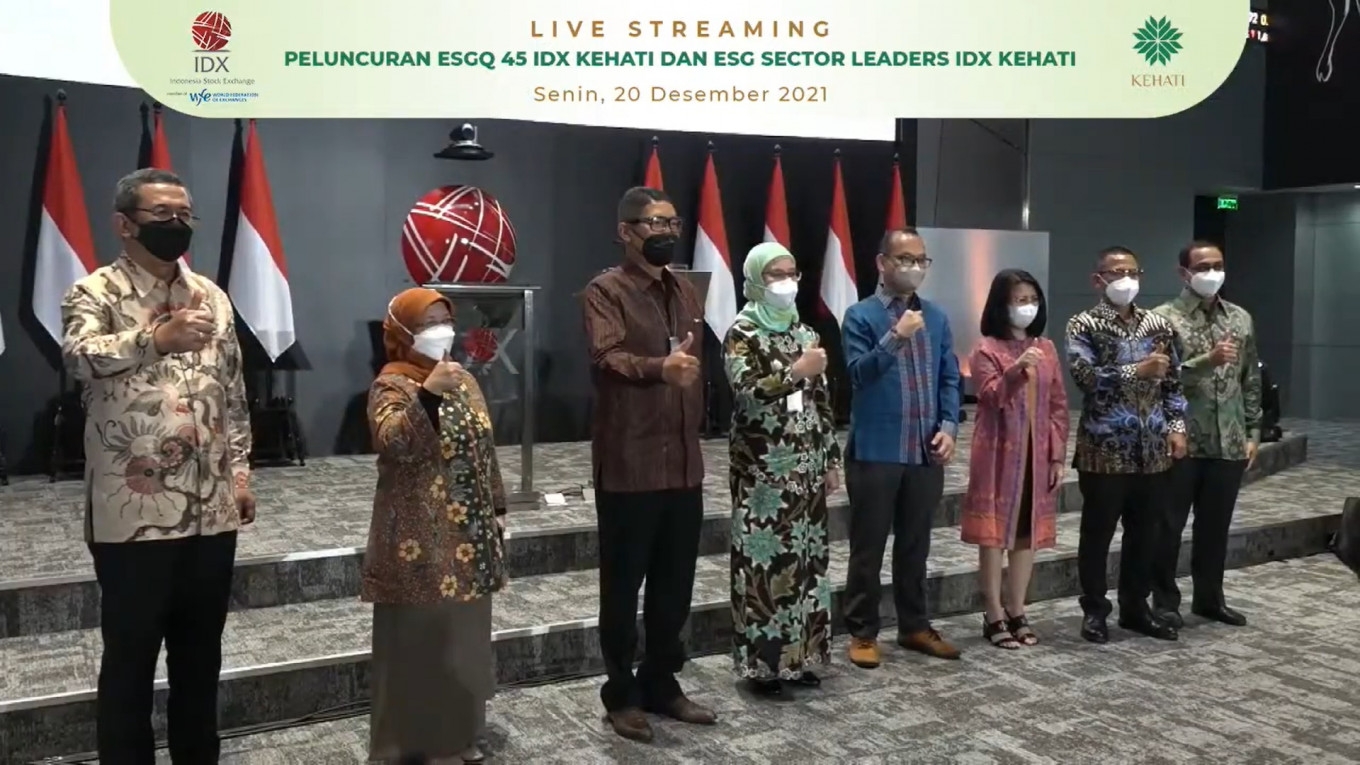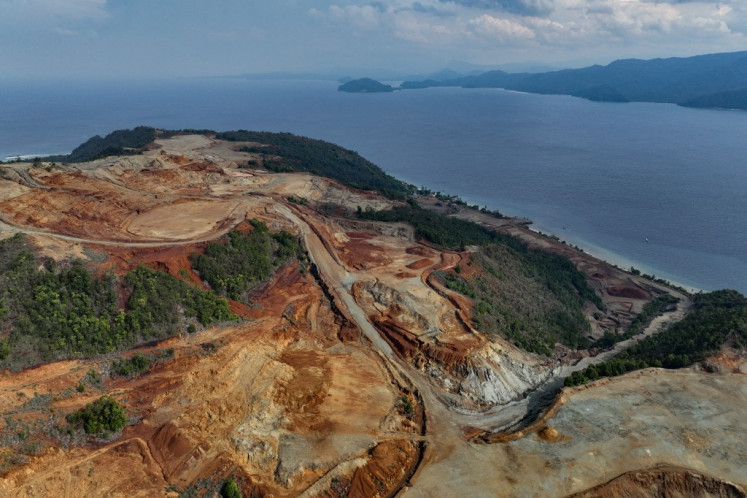The better the sustainability report, the more investment
Indonesian companies should be able to identify and explain how they manage future and potential ecological risks and consequently, prepare a strategic mitigation plan to respond to such climate risks.
Change text size
Gift Premium Articles
to Anyone

W
ith discussion on Environmental, Social and Governance (ESG) gaining traction, it is vital to increase public awareness of the issue. This can be achieved by developing a standardized set of information that investors, companies and stakeholders can use in their decision-making processes.
ESG can play a key role in helping countries, including Indonesia, meet the objectives of the 2015 Paris Agreement and the United Nations (UN) Sustainable Development Goals (SDGs). As an archipelagic state, championing these two world agendas would help Indonesia to respond better to climate challenges.
Indonesia, which holds the Group of 20 (G20) presidency, has already made a policy in the form of Financial Services Authority (OJK) Regulation No. 51/2017 on ESG reporting. The regulation requires Indonesian-listed companies and financial-services companies, such as banks, insurance and multi-finance companies, to submit an ESG report, which is referred to as a sustainability report.
With this sustainability report, investors and stakeholders can access information on how companies manage the relevant sustainability issues. However, the key question is how the regulator can improve the OJK Regulation 51/2017 regarding the information disclosed in this report to make it more impactful.
Sustainability owes its origin to the 1987 World Commission on Environment and Development report “Our Common Future” (the Brundtland Report). The report defines sustainable development as development which enables societies to fulfil their needs without compromising the ability of future generations to make ends meet. This is worth remembering in terms of ESG, the business world and the economy.
ESG paves the way for more sustainable investment that focuses on longer-term goals. Investors see corporations that do not comply with ESG standards as having a riskier profile. In a more risk-averse world due to COVID-19 and the associated financial crisis, ESG reporting has provided another form of risk assessment to investors.
As of yet, there is no globally accepted set of ESG reporting standards, posing difficulties to investors to understand and compare ESG data across companies and jurisdictions. Two models that could be utilized internationally (and by Indonesia) come from the United Kingdom and European Union.
In the UK, ESG reporting regulation is regulated under the Companies Act 2006 (CA 2006) and Climate-Related Financial Disclosures Regulations. Meanwhile, in the EU, ESG reporting falls under the Non-Financial Reporting Directive, which is currently supported via the Corporate Sustainability Reporting Directive (CSRD).
There are key differences between the UK and EU models on one hand and that of Indonesia on the other hand. The former requires disclosure of information on climate-change mitigation, respect for human rights, anticorruption and antibribery principles. This is not the case in Indonesia, which is why reform is needed in this area for several reasons, including in order to increase its attractiveness as an investment destination.
First, regarding environmental aspects, information related to climate-change mitigation must be included, given Indonesia’s climate risk. According to the Asian Development Bank (ADB) report in 2021, Indonesia ranked third in terms of climate risk, with high exposure to all forms of flooding, sea-level rise and extreme heat. This means Indonesia is vulnerable to climate-change impacts.
The ESG reporting should highlight environmental impacts. Indonesian companies should be able to identify and explain how they manage future and potential ecological risks and consequently, prepare a strategic-mitigation plan to respond to such climate risks.
Second, regarding social aspects, the information related to human rights should be part of the sustainability report. The Indonesian Constitution protects human rights under the principles of a democratic and rule-based state. As Indonesia wants to play a bigger role at the international level, the key stakeholders such as the government, state-owned enterprises and business associations bear the responsibility to respect, promote and protect human rights.
Therefore, human-rights matters should become inseparable with business in Indonesia. In 2018, then United Nations High Commissioner for Human Rights Zeid Raad al Hussein visited Indonesia and disclosed a number of corporations that violated human rights, including those in mining, forestry and palm-oil plantation sectors.
Third, governance and anticorruption and antibribery matters. Based on the latest data released by Transparency International, Indonesia ranked 96 out of 180 countries in last year’s global corruption-perception index. Indonesia trails far behind ASEAN neighbors such as Singapore (4th) and Malaysia (62nd).
If Indonesia wants to woo more investments, then compliance with the anticorruption and antibribery standards must be monitored, evaluated and reported to investors and stakeholders.
The ESG issues should be disclosed in the corporate sustainability reports to provide more comprehensive information and increase ESG awareness among investors. Most vital is that OJK Regulation 51/2017 be reformed and ESG be placed at the center of company reporting in Indonesia.
The sooner it happens the better. A less-risky Indonesia can expect to reap the longer-term investment the country badly needs to sustain its development and economic growth.
***
Enrico Denis is an LLM candidate at School of Law, the University of Dundee, the United Kingdom, where Parulian Sihotang studies at School of Business.









